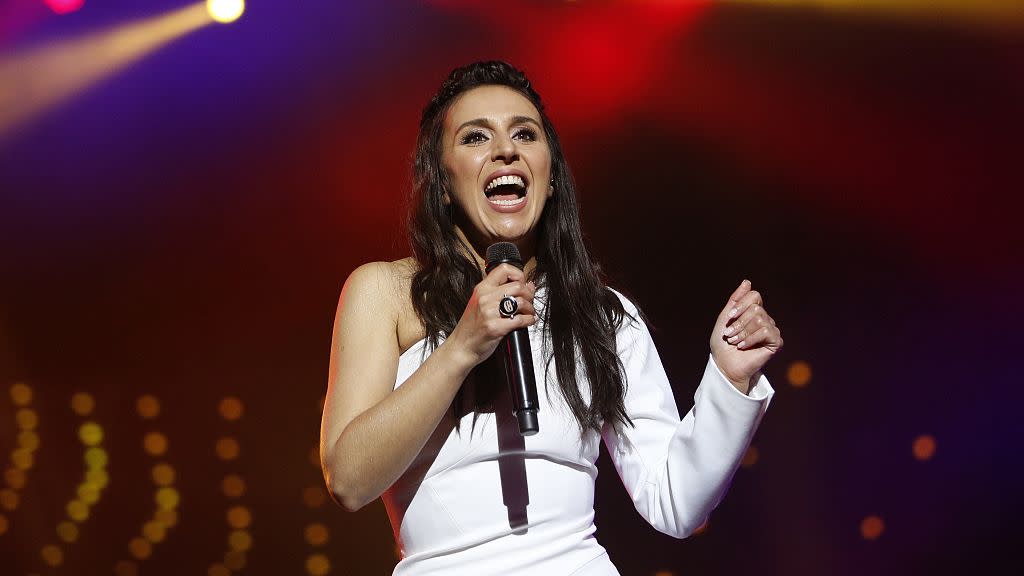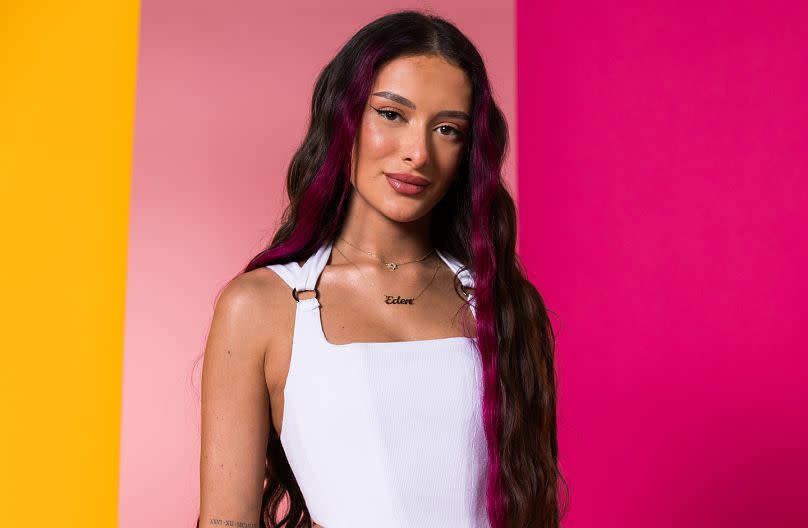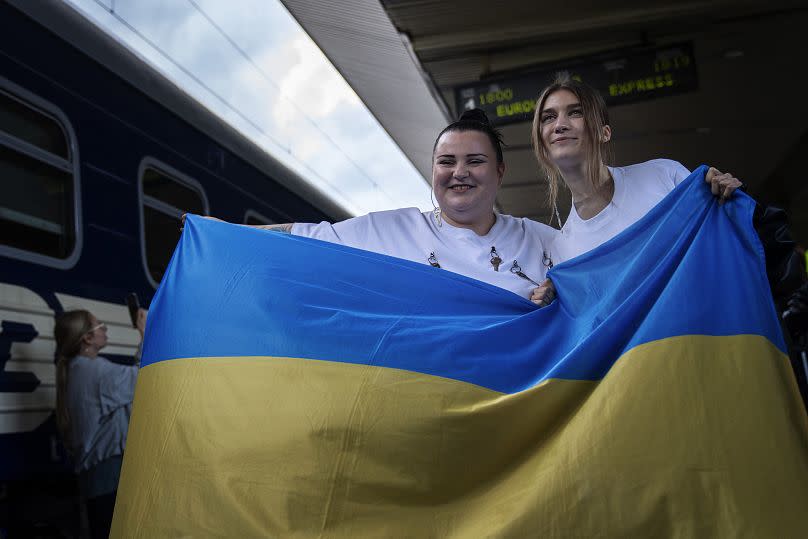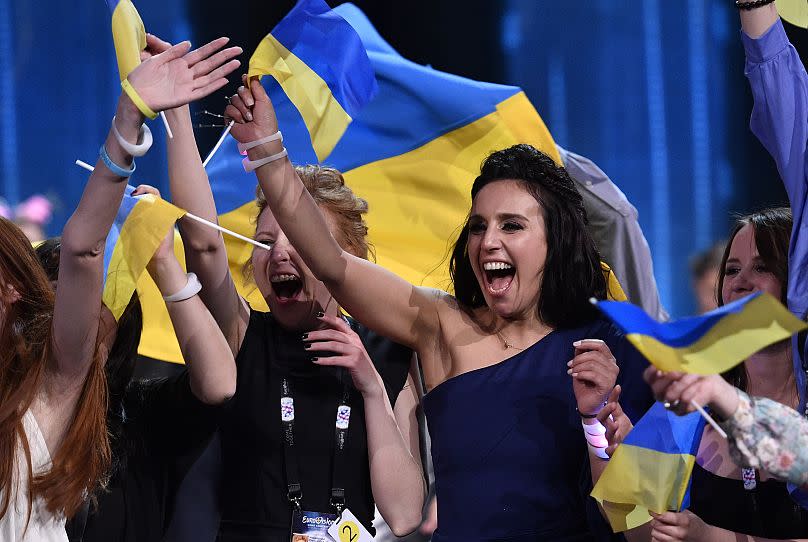Ukraine Eurovision winner Jamala says boycott not an option for embattled nation

Ukrainian Eurovision winner Jamala said her country can't afford to get political at this year's song contest, as calls multiply for participants to boycott Eurovision over the Israel-Hamas war.
“Some countries may refuse to participate [in the song contest],” Jamala, who was placed on Russia's wanted list last year, told PA media. “But we don’t. Especially we cannot afford to give up such a contest in time of war.”
Eurovision will take place this week in the Swedish coastal city of Malmö, beginning with the first semi-final tomorrow (7 May), and is set to feature Israel’s controversial entry, “Hurricane”.
As yet, no country’s participants have announced a boycott of the contest, in spite of continued pressure by critics who take issue with Israel's participation.
In March, more than 450 queer artists, musicians and writers signed a letter calling for the UK’s entry Olly Alexander to boycott this year's competition.
Alexander issued a personal response to the petition, as well as a joint statement with Irish entrant Bambie Thug and other Eurovision artists in which they declined to boycott the event, at the same time assuring fans that they all "stand united against all forms of hate, including antisemitism and Islamophobia."
An 'apolitical' song contest
Eurovision routinely insists upon its strictly apolitical remit, and organisers of the contest have already pledged to eliminate any iconography expressing solidarity with Palestine in light of the ongoing war in Gaza, which has claimed the lives of over 34,500 people - the majority of whom are women and children - and injured at least 77,000.
This year’s entrant for Israel, Eden Golan, was permitted to participate after changing the controversial lyrics to her initial song, “October Rain”, which made reference to the 7 October Hamas attacks, so as to avoid breaching the contest’s political neutrality rules.
In spite of being allowed to participate, Golan has been warned by organisers to stay in her hotel room as much as possible over safety fears.

Defending the decision to allow Israel’s participation, Jean Philip de Tender, the deputy director general of the European Broadcasting Union (EBU), which organises Eurovision, told Sky News yesterday (5 May) that to have excluded Israel “would have been a political decision”.
He nevertheless drew a distinction between the situations in Ukraine and Gaza, suggesting that the circumstances leading to Russia’s continued exclusion were “different” to those currently threatening Israel's involvement.
In her own intervention, Jamala also drew the focus away from Israel and onto Ukraine. She spoke in practical terms: “There are many wars now in the world and, of course, it is not easy to constantly keep attention on yourself so that people do not get tired of our war.
“But that is our task, people who remain in Ukraine, people who are fighting, to be as loud and creative … this is the task of artists to find new ways of how to reveal and show their country.”

An international cultural platform
With this year's entry, alyona alyona & Jerry Heil's "Teresa & Maria", Ukraine will be hoping to replicate Jamala's 2016 triumph, which also took place on Swedish soil in the nation’s capital, Stockholm.
From Crimea, Jamala won in the aftermath of Russia’s 2014 invasion and subsequent annexation of the peninsula.
At the time, the singer remained tight-lipped about the contemporary political relevance of her song, “1944”, written about Stalin’s deportation of the Crimean peninsula’s Tatar population.
“There is no political statement on my song, just to commemorate my great grandmother, just to commemorate the thousands of Crimean Tatars,” she told Euronews. “We should never forget about this tragedy of our people.”
The transition in Jamala’s comments since then illuminate the increasing synonymy between Eurovision’s playful, colourful, camp extravaganza and the dark spectre of wider geopolitical events - in spite of the contest’s avowed political neutrality.
This seeming contradiction has already crystallised in the example of Ukraine, of course: following Russia’s invasion in early 2022, the nation’s entry "Stefania" won out that year as clear favourite, leading to second-placed UK hosting the 2023 competition on their behalf in the city of Liverpool.

Ukraine earned its Eurovision victory during a war not just over territory but also cultural visibility - a crucial boost at a time when the very notion of a distinct Ukrainian people and culture was (and still is) being erased by Russian propaganda.
Jamala’s comments speak expressly to the potential advantages available to a country competing in Eurovision, not least one locked in a war of culture as well as combat.
But this argument cuts both ways, and will no doubt continue to be invoked by those advocating both for and against boycotting the contest if Israel is granted, as seems likely, an international cultural platform.
The Eurovision Song Contest semi-finals are on Tuesday 7 and Thursday 9 May before the Grand Final on Saturday 11 May.

 Yahoo News
Yahoo News 
